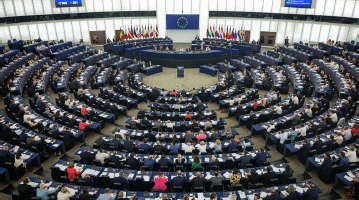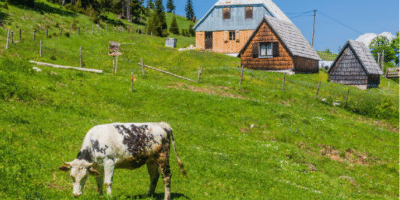Slovenian Foreign Minister Tanja Fajon said today, ahead of the EU Foreign Affairs Council meeting in Luxembourg, that it’s essential to continue supporting Western Balkan countries on their path toward EU membership. She highlighted that Montenegro is making solid progress. Fajon also expressed concern about the situation in Bosnia and Herzegovina, mainly due to the ongoing secessionist rhetoric, which she said is harming the country’s EU integration process.
“What’s happening in our region matters. We are particularly worried about Bosnia and Herzegovina, especially the secessionist rhetoric, which of course damages the country’s path toward the European Union,” Fajon told reporters before the meeting.
She mentioned that, during an informal meeting with foreign ministers from the Western Balkans held yesterday, there was agreement on the need to support these countries in joining the EU by 2030, stressing the geopolitical importance of the region.
Fajon also noted that Albania is set to open a new negotiation chapter later this evening, and repeated that Montenegro is doing well on its EU path. “I hope another country will speed up its reform process,” she added, emphasizing the EU’s desire for a “strong and stable Serbia.”
She also recalled the joint initiative by Slovenia and Germany to speed up EU enlargement by introducing qualified majority voting, which, according to her, would help accelerate negotiations and reduce bilateral obstacles between countries.
Fajon is attending today’s EU Foreign Affairs Council meeting in Luxembourg, where ministers will discuss developments in the Western Balkans particularly the worsening situation in Bosnia and Serbia along with the war in Ukraine and the crisis in the Middle East.
It’s encouraging to hear firm support from voices within the EU, especially when it comes to enlargement a topic that often gets pushed aside in times of broader global crises. What stands out is Fajon’s emphasis on not just timelines and reforms, but also stability and cooperation.
The fact that Montenegro is being recognized for its progress shows that steady, consistent reform does get noticed even if it doesn’t always make headlines. At the same time, her concerns about Bosnia remind us how fragile the region still is. Political rhetoric, especially the kind that questions unity and peace, can easily derail years of progress.
The push for qualified majority voting in the enlargement process is also an interesting idea. It could help reduce the influence of individual countries blocking progress over bilateral issues something that’s held back certain candidates before. But any change like that will require a lot of political will within the EU itself.
Overall, it feels like a crucial time for the region full of potential, but also real risks. Support from the EU matters, but so does regional responsibility. The next few years will show how ready both sides really are.
Written by our correspondent A.A.



